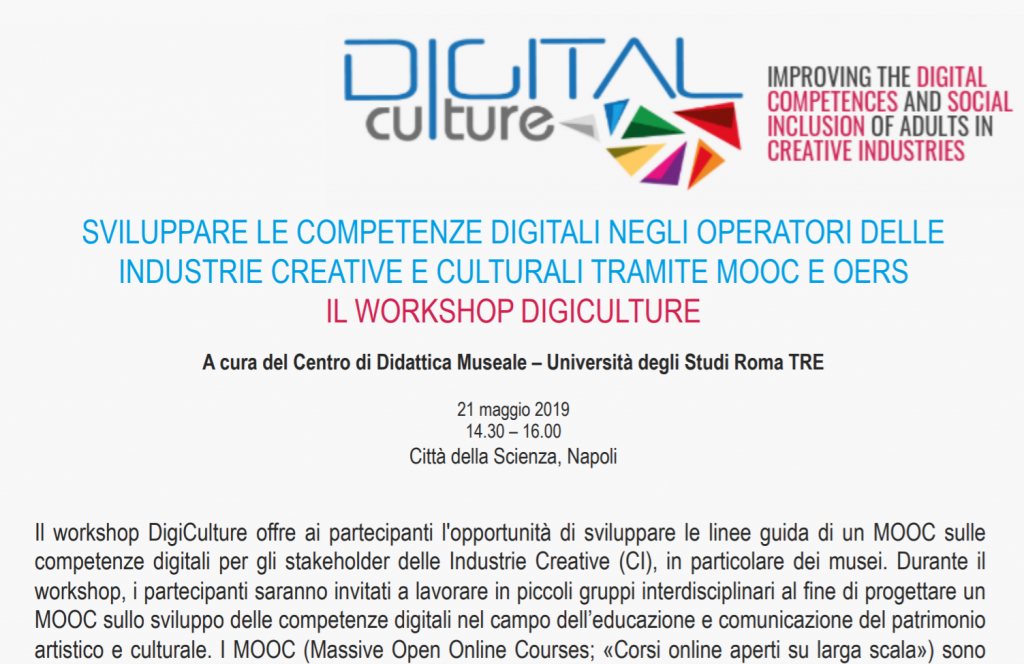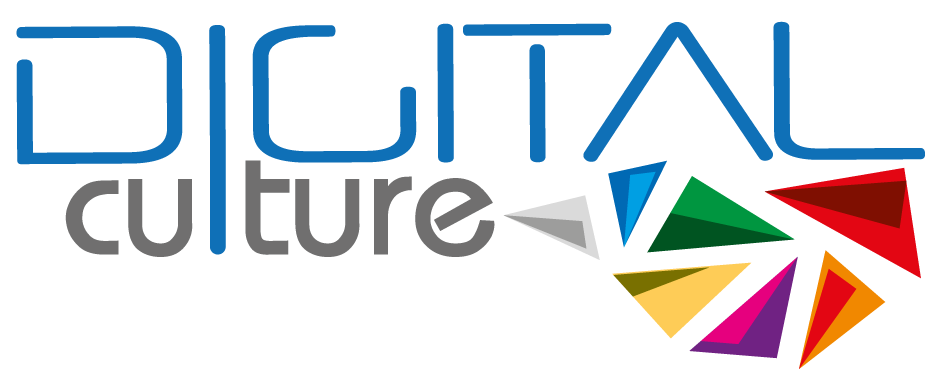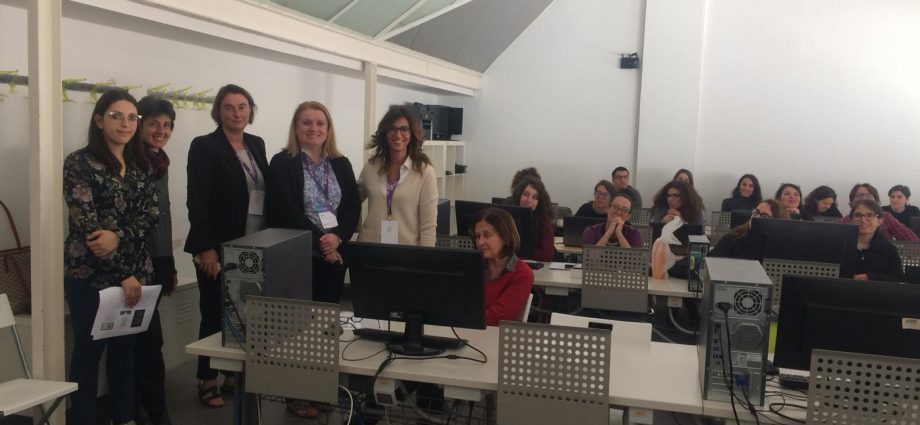The EMOOCs 2019 MOOC stakeholders summit (20-22 May 2019) comprised the consolidated format of Research and Experience, Policy and Business tracks, as well as interactive workshops. And featured keynote speakers, round table and panel sessions as well as individual presentations in each track. The aim was for decision-makers and practitioners to explore innovative and emerging trends in online education delivery, and the strategic policy that supports them.
The workshop in Naples was carried out by the Center for Museum Studies of the Roma TRE University at “Città della Scienza” the biggest Science Center in the South of Italy. Museum educators who operate at “Città della Scienza” took part in the workshop.

The workshop was designed to offer to the participants the opportunity to develop the outline of a MOOC on digital skills for Creative Industries (CI) employers. The topic of the workshop “Developing digital skills through MOOCs and OERs for Creative Industry employers” concerns to the way MOOCs can be designed to fill in the digital skills gap of people who operate in CI and how they can promote social inclusion, media literacy, intercultural competences and the 4C skills (critical thinking, creativity, communication and collaboration; Trilling & Fadel, 2009). In addition, it is focused on the concept of openness, inclusive use and development of OERs.
The workshop lasted approximately 2 hours. The workshop was also aimed to support networking among people who operate in the field of CI, digital skills and open education, enforcing the impact of their previous experiences. To sum up, the workshop had the following objectives:
- to present the DigiCulture project and and the Conceptual Framework of Digital Competences for Culture and Creative Industries;
- to guarantee full access to the intellectual outputs of the DigiCulture project by presenting the online locations on the project partners’ websites where participants can be accessed.
- to invite participants to reflect on the possibilities for digital skills development in CI sectors (Museums, galleries and libraries; Music, performing and visual arts; Advertising and marketing; Architecture; Crafts; Design; Film, TV, video, radio and photography; IT, software and computer services; Publishing and Tourism);
- to invite participants to design a MOOC for adult of CI aimed at developing digital skills and, at the same time, other transversal skills such as communication, collaboration, social inclusion, creativity and critical thinking;
- to select existing OERs in order to create online learning activities and share research materials in the field of digital skills development for CI sectors.
The group of participants was composed by 18 teachers, researchers, trainers and educators who work in the field of digital skills and/or Creative Industries sector.
At the end of the workshops, participants self-assessed their transverse competences promoted during the in-group activities through a self-evaluation survey composed by both closed and open-ended questions where participants were asked to reflect on workshops’ contents and experience.
Participants assessed positively the impact of the workshop on their transversal skills.
The most appreciated workshop characteristic was “meeting other delegates and talking about Digital Literacy”.
The team members that participated were Antonella Poce and Maria Rosaria Re from University of Roma Tre, Italy, Diana Andone from Universitatea Politehnica Timisoara, Romania, Mairead Nic Giolla Mhichil from Dublin City University, Ireland.


